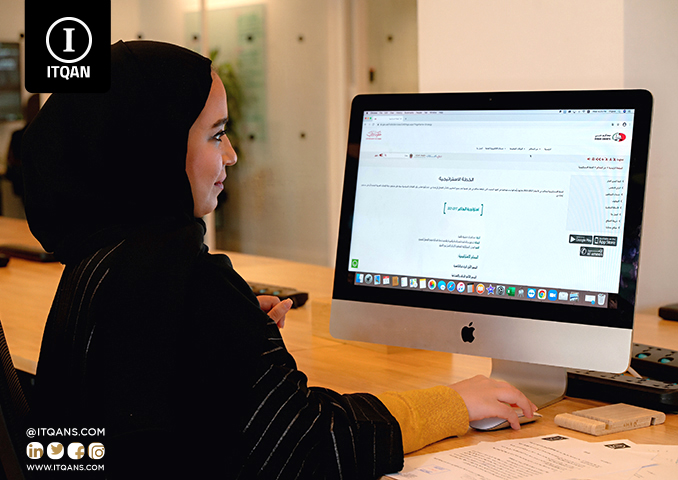How to establish a company in the Emirates. The United Arab Emirates is considered one of the most prominent global destinations for establishing companies and businesses, thanks to its active and developed economic environment. Establishing a company in the UAE provides great opportunities for growth and success in a market characterized by dynamism and openness to foreign investments. This guide aims to provide a comprehensive overview of the basic steps and procedures required to establish a company in the Emirates, starting from choosing the appropriate type of company, through legal procedures, all the way to managing financial resources.
In this context, it is important to be fully aware of the local legislation and laws that govern the process of establishing companies in the UAE. You must also be prepared to meet the requirements of various government agencies and obtain the necessary licenses that ensure your business runs smoothly and in compliance with the laws.
Whether you are a novice business owner or an experienced investor, this guide will provide you with the basic information you need to successfully start your venture in one of the most promising markets in the Middle East.

How to establish a company in the Emirates
جدول المحتوى
ToggleChoose the company type
When considering establishing a company in the Emirates , choosing the type of company is one of the most important steps that must be carefully considered. The type of company depends on the business objectives, business size, and type of activity you intend to engage in. Below we will review the main types of companies available in the UAE:
Free zone company
Free zone companies are a popular choice among entrepreneurs and foreign investors. Free zones provide an integrated business environment with many advantages, such as 100% full foreign ownership, tax exemption on income and profits for specific periods of time, in addition to facilitation of establishment and operation procedures. Free zones are ideal for companies focused on international business, such as import and export, logistics, and technology.
Local company
Local companies, or as they are known as mainland companies, are those that are established and operate within the borders of the United Arab Emirates and are subject to its local laws. Establishing a local company requires an Emirati partner or a local service agent who owns 51% of the company’s shares, while a foreign investor can retain the remaining 49%. This type of company is suitable for businesses that target the local market and deal directly with customers and suppliers within the country.
International company
International companies are entities that are established in the UAE but whose activity mainly focuses on foreign markets. These companies may be registered in certain free zones or within the local corporate legal system, depending on the nature of the business and commercial objectives. International companies are a good choice for investors who want to take advantage of the UAE’s strategic location as a gateway to global markets, while enjoying competitive advantages such as advanced infrastructure and encouraging trade policies.
By choosing the right company type, investors can make the most of the opportunities available in the UAE market and ensure their business is compliant with the legal and regulatory frameworks.
Legal procedures for establishing a company in the Emirates
Establishing a company in the UAE requires compliance with a set of legal procedures aimed at regulating the process of establishing companies and ensuring their compliance with local and international laws. These procedures are divided into several basic steps that must be followed carefully to ensure that the company is established correctly and legally.
Obtaining licenses
The first step in the legal procedures is to obtain the necessary licenses to conduct business activity. The type of licenses required varies depending on the type of company and the activity it will undertake. In the case of local companies, a commercial license must be obtained from the Department of Economic Development in the emirate in which the company will be established. As for companies located in free zones, a license must be obtained from the competent free zone authority.
Registration in government departments
After obtaining licenses, the company must be registered in the relevant government departments. This includes registering with the commercial registry and obtaining a commercial registration certificate. In addition, the company must be registered with the Federal Authority for Identity and Citizenship to obtain a business ID number. This registration allows the company to benefit from various government services and enables it to contract with government and private agencies.
Compliance with legal requirements
The company must comply with all legal requirements imposed by UAE laws. This includes compliance with laws related to labor and employment, as the company must provide formal employment contracts to employees and register them in the wage protection system. In addition, you must comply with tax laws and file tax returns on time.
Compliance with environmental and health requirements is also an important point. Companies must ensure that their activities do not cause any harm to the environment and adhere to the required health standards. If these requirements are not complied with, the company may face financial fines or legal penalties.
By carefully following these legal procedures, a company can start its business in the UAE legally and enjoy all the advantages that the business environment in the country offers.
Financing and financial resources
Financing and managing financial resources are among the most important aspects to consider when establishing a company in the UAE . Without a solid financial plan, the company may face difficulties in continuing and thriving. This part of the article includes a discussion of the capital required, how to obtain financing, and managing financial resources effectively.
Required capital
Capital is the primary factor that determines the ability to start business operations. In the UAE, the capital required varies depending on the type of company and the location in which the company is established. For example, free zone companies require less capital compared to local or international companies. It is necessary for investors to determine the capital necessary to cover all initial costs such as rental costs, equipment purchases, and employee salaries. A financial advisor can be used to determine the appropriate amount based on the type and size of the targeted business.
Get financing
After determining the required capital, the next challenge comes: obtaining financing. There are several options that investors can resort to to finance their project:
- Bank loans: Many banks in the UAE offer business loans on favorable terms to entrepreneurs. You can apply for a loan after preparing a solid business plan that explains the feasibility of the project and how to achieve profits.
- Investors: Individual investors or institutions that wish to invest in the project can be searched for in exchange for a percentage of profits or ownership of shares in the company. This partnership can provide not only financing, but also expertise and strategic support.
- Funds: There are several funds in the UAE that support small and medium enterprises. It is possible to apply for financial support from these funds after meeting certain requirements.
- Self-financing: If the founder has enough capital, he can use his personal savings to finance the project. This option spares the company interest and debt costs but carries greater risk for the founder.
Financial resources management
Managing financial resources effectively is the cornerstone of ensuring the sustainability and growth of the company. Investors should follow sound financial strategies that include the following:
- Budget preparation: A detailed budget must be prepared that covers all expected expenses and revenues. This budget helps monitor financial performance and identify areas that need improvement.
- Periodic accounting: It is necessary to maintain accurate financial records and update them periodically. A professional accountant can be used to ensure the accuracy of accounts and compliance with financial standards.
- Cost control: Costs must be monitored regularly and ways to reduce them should be looked for without affecting the quality of the product or service.
- Cash flow management: Care must be taken to manage cash flow effectively to ensure there is sufficient liquidity to cover daily and emergency expenses.
In short, financing and managing financial resources is a vital part of the process of establishing a successful company in the UAE. Through good planning and implementing effective financial strategies, a company can achieve sustainability and growth in a thriving business environment.

Establishing a company in the Emirates
Establishing a company in the Emirates
Establishing a company in the UAE represents a strategic step that can open up wide horizons of business opportunities and economic success for you. Whether you choose to establish a company in a free zone, a local company, or an international company, understanding the legal procedures and complying with legal requirements are essential to ensuring that your company runs smoothly and successfully.
By obtaining the necessary licenses and registering the company in the relevant government departments, you can ensure that your company operates legally and in accordance with the regulations in force in the country. In addition, it is necessary to secure the necessary financing and manage financial resources wisely to ensure the sustainability and development of your business.
Remember that the UAE provides an encouraging and supportive business environment for investors and entrepreneurs, with advanced infrastructure and flexible laws that facilitate establishment and growth. Therefore, we advise you to take advantage of these opportunities and use available resources wisely to achieve your business goals.
In conclusion, establishing a company in the UAE requires good planning and a careful understanding of the legal and financial procedures and requirements. By following the guidelines and tips mentioned in this article, you will be in a better position to successfully establish your company and achieve growth and prosperity in the dynamic and diverse UAE market.
Frequently asked questions about establishing a company in the UAE
What are the different types of companies that can be established in the UAE?
Limited Liability Company (LLC): Suitable for small and medium businesses. Free zone company: allows full foreign ownership and benefits from tax advantages. Branch of a foreign company: A branch of a company located outside the Emirates can be established.
What are the basic steps to establish a company in the UAE?
Determine the type of business activity. Choosing the appropriate company structure. Choose a company name. Obtaining initial approval from the competent authorities.
What are the documents required to establish a company in the UAE?
a copy of the passport. Personal Photos. Action Plan. Proof of residence address.
Does establishing a company in the UAE require a physical office?
Yes, establishing a company in the UAE requires a physical office. Some free zones offer virtual office services, but many businesses require a physical office or workspace.
How can I get advice on establishing a company in the UAE?
Is it possible to transfer the company from a free zone to the main zone?
Yes, the company can be transferred from a free zone to the main zone, but this requires following specific procedures and obtaining the necessary approvals from the competent authorities.

















